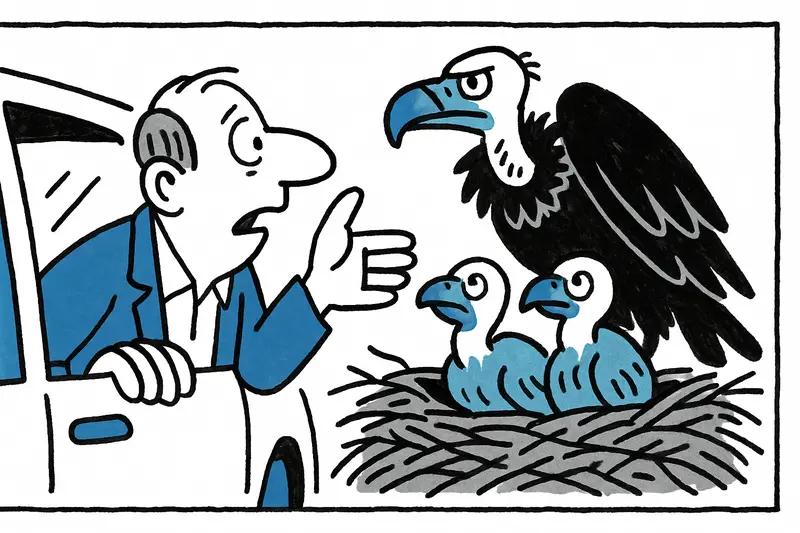A pair of bearded vultures built a nest this summer for the first time in eastern Mallorca. A major win for conservationists—and an invitation to watch with respect.
New neighbors in the sky: Bearded Vultures in Llevant
In recent weeks, if you are in the northeast of the island, you may hear the faint whirr of large wings overhead: A breeding pair of Bearded Vultures has for the first time established a nest in the Llevant Nature Park.
No more Tramuntana winds, but Llevant: between dry-stone walls, sheep pastures and the occasional donkey hill—quite Mallorcan, if you ask me.
The nest sits so that from the small side road you could almost share the view; but please stay in your car or keep your distance. The authorities have asked for calm right after the discovery: no selfies, no hikes to the nest, no dogs nearby. Sounds strict? It is – the birds should raise their chicks in peace.
What exactly was counted
The numbers read well: around 49 potential breeding sites were registered this year, of which about 35 pairs were actually observed. From these pairs, 35 young vultures hatched, and 32 have already taken their first flight. For people who have cared for the species for decades, this is a real upward trend.
Behind the success are not only scientists: shepherds, conservationists and volunteers have together maintained pastures and controlled invasive goat populations – simple work, big impact. Open landscapes, little disturbance and enough carrion from extensive husbandry help the large scavengers regain a foothold.
Why the nest in the east is important
Up to now, Serra de Tramuntana was considered the island's main refuge for bearded vultures. That a permanent breeding pair has now established itself in the Llevant shows that the population is expanding and becoming more diverse. This reduces the risk posed by locally isolated problems—storms, diseases or accidents do not affect the entire island population all at once.
The Ministry of Agriculture called the finding an important step for species conservation. Whether ministerial phrases or official words: a look at the sky is enough for me to know that something good is happening. The birds bring life to the landscape, and yes, they also have a very photogenic way of circling the island.
How you should behave
Simple, but important: keep your distance, don't poke around near the nest and no selfies with an outstretched arm on the slope. If you discover a nest, better report it to the local nature conservation authority rather than posting it on social media. And if you happen to meet a shepherd — a quick thank you sometimes says more than ten likes.
I will continue to monitor the situation — not with binoculars at the roadside, promise — and I will report back when the juveniles take their first wobbly glides. Until then: eyes up, keep your respect, and a bit of pride in the island that is increasingly a home for its wild inhabitants.
Similar News

Life-threatening swimming accident in Ibiza: 73-year-old revived on the beach
During severe storms, a 73-year-old visitor swam despite a red flag. Lifeguards rescued her, and she is now seriously in...

Mummified Body Found in Abandoned House Near Santa Margalida
Between Can Picafort and Son Serra de Marina, teenagers discovered a mummified corpse in an abandoned house. Identity an...

Large Rockfall Blocks Ma-2141 Road Near Sa Calobra
After heavy rainfall, several rock blocks toppled onto the winding Ma-2141 toward Sa Calobra over the weekend. The road ...

Ibiza: Clubs Hosted Closing Parties Despite Weather Warning
Despite an official weather warning and calls to postpone large events, several Ibiza clubs held the closing parties. Pu...

Nearly Eight Tonnes of Garbage Recovered from the Sea Off the Balearic Islands
In September, nearly eight tonnes of waste were collected from the waters off the Balearic coasts. Boats around Mallorca...
